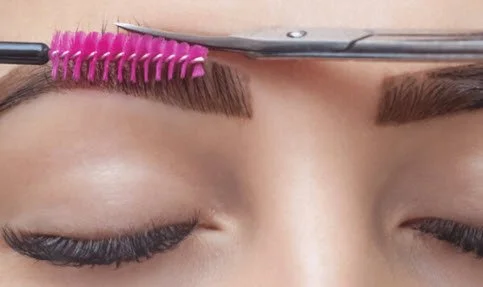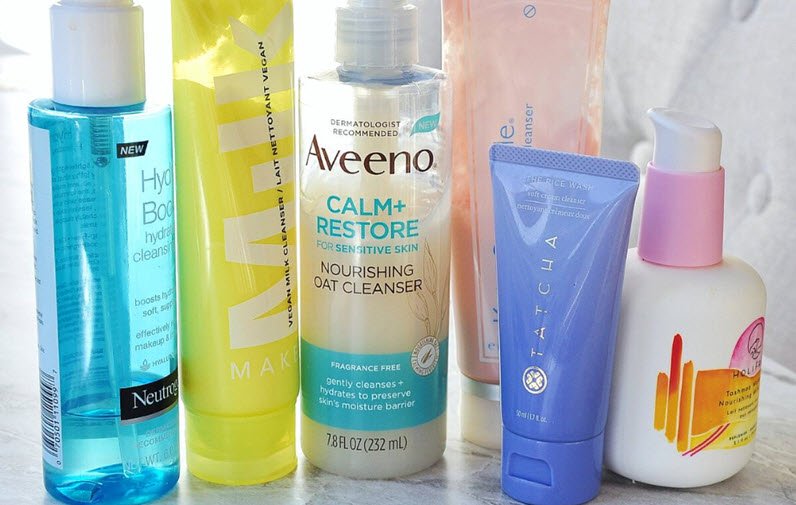What Does Toner Do for Your Skin? A Realistic Guide to When and How to Use It
Let’s be honest! Toner has a bit of a mysterious reputation in the beauty world. Some people swear by it, others skip it completely. So, do you really need toner in your skincare routine?
The short answer is: maybe. It depends on your skin’s needs, the type of toner you're using, and how the rest of your routine is built. But if used the right way, a good toner can help your skin feel cleaner, more balanced, and better prepped for the rest of your products.
Let’s break down what toner does, who it works best for, and how to make it part of a routine that feels right for you.
✨ So, What Is Toner and What Does It Actually Do?
Toner is a water-based liquid that’s usually applied after cleansing your face and before moisturizing. Its job? To help sweep away any leftover residue your cleanser didn’t catch, like oils, makeup traces, or impurities from the environment.
But it’s not just about the extra clean. Many toners today are packed with ingredients that hydrate, soothe, or lightly exfoliate the skin, depending on the formula. Some can help balance your skin’s pH after cleansing (especially if your cleanser is a bit harsh), and others give your face a refreshed, firmer appearance like a mini skin reset before your serums and moisturizers go to work.
🤔 Is Toner a Must-Have? Not Exactly—But It Can Be a Game-Changer
Let’s set the record straight: toner is not essential for everyone. You can have a healthy, effective skincare routine without it. But for some, using toner can make a noticeable difference especially if your skin feels dry, oily, unbalanced, or congested.
Depending on the formula, toners can:
Hydrate and plump your skin (especially glycerin or aloe-based ones)
Exfoliate using ingredients like AHAs or BHAs
Minimize the look of pores and refine skin texture
Soothe irritation or redness with calming ingredients
Help fade dark spots over time with brighteners like vitamin C
Toners are all about delivering an extra layer of support. Think of it like the refreshing glass of water your skin drinks before moving on to more concentrated products.
📅 How Often Should You Use Toner?
It depends on what your skin can handle and what kind of toner you're using:
If your toner is hydrating, you can use it daily, sometimes even twice a day.
If it’s exfoliating (with ingredients like glycolic acid or salicylic acid), try every other day to avoid over-stripping the skin.
If your skin is very dry, sensitive, or reactive, it’s okay to skip toner altogether. Some formulas even alcohol-free ones can still feel too intense for certain skin types.
The key is to listen to your skin and introduce new products gradually.
🧴 How to Apply Toner the Right Way
You’ve got a few options when it comes to application:
Soaked cotton pads: This is the most traditional and effective way to sweep toner gently across your face.
Clean hands: Patting toner directly into your skin can work well for hydrating formulas.
Spray bottle: For a lightweight refresh during the day, some people decant their toner into a mister.
No matter which method you choose, toner should always be applied after cleansing and before your serums or moisturizers. And one more important tip: don’t rinse it off. Toner is designed to be left on the skin so its ingredients can do their job.
🧪 Types of Toner: Not All Are Created Equal
The beauty of toners today is that they’ve come a long way from the alcohol-heavy astringents of the past. Here’s a quick look at the main types:
Types of Toners
Alcohol-based: Best avoided unless your skin is super oily and can handle it. These can be drying and irritating for most people.
Glycerin- or glycol-based: These offer hydration and a silky finish, making them ideal for dry, dehydrated skin.Whatever it is, the way you tell your story online can make all the difference.
Water-based or hydrosols: These are gentle and often infused with calming botanicals good for sensitive or normal skin.
When shopping for toner, always check the label. Look for keywords like “alcohol-free,” “pH-balanced,” or “hydrating” especially if your skin is prone to dryness or irritation.
⚠️ A Quick Word on the Downsides
Toner can be super beneficial, but it’s not without its risks especially if misused:
Dryness or peeling from overly strong or alcohol-heavy formulas
Disruption of your skin’s natural barrier if used too often or paired with too many actives
Over-exfoliation if you’re already using scrubs, retinoids, or exfoliating cleansers
That’s why it’s important to know what you’re using and build your routine around what your skin really needs, not just what’s trending.
🌟 Final Thoughts: Is Toner Worth It?
If your current routine is working for you, no need to fix what’s not broken. But if you’re looking for a way to enhance your skincare ritual, give toner a try. A well-matched toner can help your skin feel fresher, more balanced, and ready to take in the goodness of your other products.
At Care Product, we’re all about helping you find what works for your skin without the pressure to use every step under the sun. Toner may not be a must-have, but for some skin types, it’s a real treat.





















